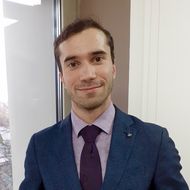- A
- A
- A
- ABC
- ABC
- ABC
- А
- А
- А
- А
- А
- HSE University
- Faculties
- Faculty of Economic Sciences
- School of Finance
- News
- ‘This Is an Attempt to See if Science Fits You’
-
The School
-
RESEARCH ACTIVITIES
- Laboratories
- Series “Advanced studies in emerging market’s finance” at Springer Nature o Networking with international academic associations
- Networking with international academic associations
- Research seminars
- International PhD workshop
- The International Seminar «ESG Transformation»
-
RESEARCH WORKING GROUPS
- Research Working Group "Innovations in the banking sector, its financial stability and prudential regulation"
- BUSINESS EDUCATION
- Networking with business associations
- Networking with professional associations
- Center for Research on Non-Financial Reporting
-
DATABASES
119049 Moscow, Russia
11 Pokrovskiy boulevard, room S629
Phone:
+7 (495) 772-95-90*27447, *27947, *27190
+7 (495) 916-88-08 (Master’s Programme Corporate Finance)
- Email: df@hse.ru
Head of Corporate Finance Research Center, Dr., tenured professor

+7495-772-95-90 (add. 27447)

+7495-772-95-90 (add. 27947)
The HSE School of Finance is the leading Russian competence center in the field of corporate finance, business valuation, banking, stock market, risk management and insurance, accounting and audit.
HSE is the first Russian university in the global ranking "QS - World University Rankings by subject", 2022 in the subject area of Accounting and Finance. Moreover, the university is the 1-st in the rating "THE World University Rankings by subject" in the subject area of Business & Management Studies, 2022
Cherkasova V. A., Nenuzhenko I.
Journal of Economic Integration. 2022. Vol. 37. No. 1. P. 54-92.
Electronic Journal of Applied Statistical Analysis. 2022. Vol. 15. No. 1. P. 187-210.
Kolade S. A., Semenova M.
Financial Economics. FE. Высшая школа экономики, 2022. No. WP BRP 87/FE/2022.
Управление финансовыми рисками. 2022. Т. 70. № 2. С. 108-120.
In bk.: The 8th International Conference on Information Technology and Quantitative Management (ITQM 2020 & 2021): Developing Global Digital Economy after COVID-19. Vol. 199: The 8th International Conference on Information Technology and Quantitative Management (ITQM 2020 & 2021): Developing Global Digital Economy after COVID-19. Manchester: Elsevier, 2022. P. 798-805.
Korablev D., Poduhovich D.
Journal of Corporate Finance Research. 2022. Vol. 16. No. 1. P. 136-145.
Olkhovik V., Lyutova O. I., Juchnevicius E.
Научно-исследовательский финансовый институт. Финансовый журнал. 2022. Vol. 14. No. 2. P. 73-90.
Churyk N. T., Anna Vysotskaya, Kolk B. v.
Journal of Accounting Education. 2022. Vol. 58.
Абдрахманова Г. И., Васильковский С. А., Вишневский К. О. и др.
М.: Издательский дом ГУ-ВШЭ, 2022.
Абдрахманова Г. И., Васильковский С. А., Вишневский К. О. и др.
М.: Национальный исследовательский университет "Высшая школа экономики", 2022.
Гришунин С. В., Сулоева С. Б., Пищалкина И. И.
Организатор производства. 2022. Т. 30. № 1. С. 60-72.
Гришунин С. В., Сулоева С. Б., Пищалкина И. И.
Экономический анализ: теория и практика. 2022. Т. 21. № 3. С. 478-496.
S. Grishunin, E. Naumova, N. Lukshina et al.
Russian Management Journal. 2021. Vol. 19. No. 4. P. 475-493.
Journal of Corporate Finance Research. 2022. Vol. 16. No. 1. P. 99-112.
Grishunin S., Bukreeva Alesya, Alyona A.
In bk.: The 8th International Conference on Information Technology and Quantitative Management (ITQM 2020 & 2021): Developing Global Digital Economy after COVID-19. Vol. 199: The 8th International Conference on Information Technology and Quantitative Management (ITQM 2020 & 2021): Developing Global Digital Economy after COVID-19. Manchester: Elsevier, 2022. P. 190-197.
 International Conference “Future Directions in Accounting and Finance Education”, 27-28 May 2019, Moscow, Russia
International Conference “Future Directions in Accounting and Finance Education”, 27-28 May 2019, Moscow, Russia
Edited by: А. Б. Высотская, B. v. Kolk.
Vol. 58. Elsevier, 2022.
Karamysheva M., Seregina E.
Journal of International Money and Finance. 2022. Vol. 127.
In press
Journal of Economic Dynamics and Control. 2022. Vol. 137.
Karamysheva M., Skrobotov A.
Journal of Economic Dynamics and Control. 2022. Vol. 138.
Известия Санкт-Петербургского государственного экономического университета. 2022. № 4. С. 144-155.
Тихомиров Д. В., Цехомский Н. В.
Экономика и управление. 2022. Т. 28. № 1. С. 16-24.
Селезнёва З. В., Евдокимова М. С.
Финансы: теория и практика. 2022. Т. 26. № 3. С. 64-84.
Evdokimova M., Stepanova A. N.
In bk.: 38th EBES Conference - Program and Abstract Book. Istanbul: EBES, 2022. P. 39.
Assanskiy A., Shaposhnikov D., Tylkin I. et al.
Journal of Behavioral and Experimental Economics. 2022. Vol. 98.
Teplova T., Mikova E., Munir Q. et al.
Economic Change and Restructuring. 2023. Vol. 56. No. 1. P. 515-535.
Повх К. С., Кокорева М. С., Степанова А. Н.
Экономический журнал Высшей школы экономики. 2022. Т. 26. № 1. С. 9-36.
Anton Markov, Zinaida Seleznyova, Victor Lapshin.
Journal of Finance and Data Science. 2022. Vol. 8. P. 180-201.

‘This Is an Attempt to See if Science Fits You’
HSE University has hosted the latest in a series of adaptation seminars for research assistants. Representatives of the Centre for Scholarly Integration and the Centre for Student Academic Development told aspiring scientists about the opportunities afforded by participation in projects at HSE’s scientific laboratories, while experienced research assistants shared their cases.
The event, which is aimed at those involved in science at HSE University’s laboratories and research centres, is an opportunity to become more actively involved in the university’s research environment.
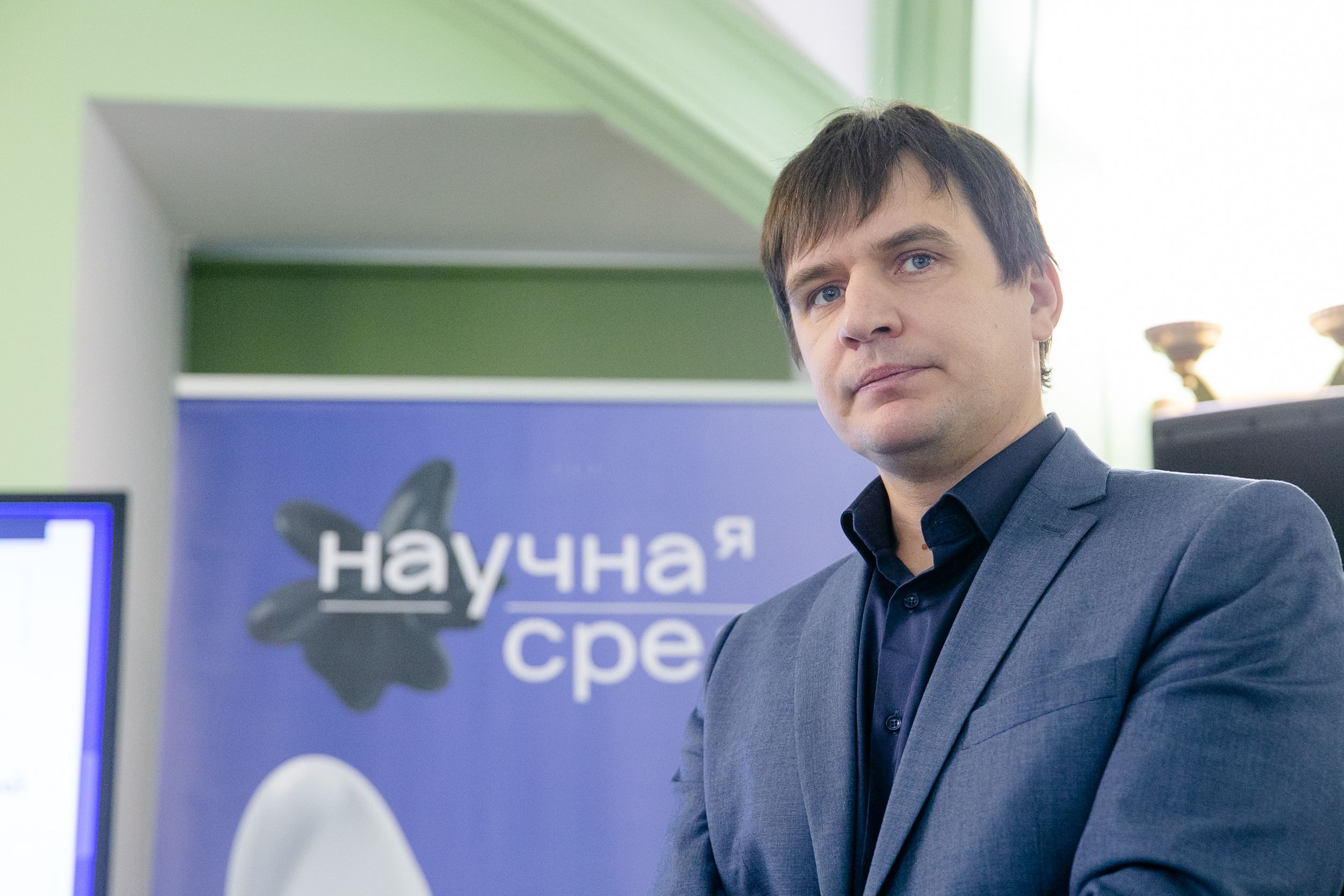
HSE University offers students limitless opportunities to enter science, find themselves and their academic interests, and implement their own research projects, explained acting Vice-Rector Alexander Balyshev in his opening remarks.
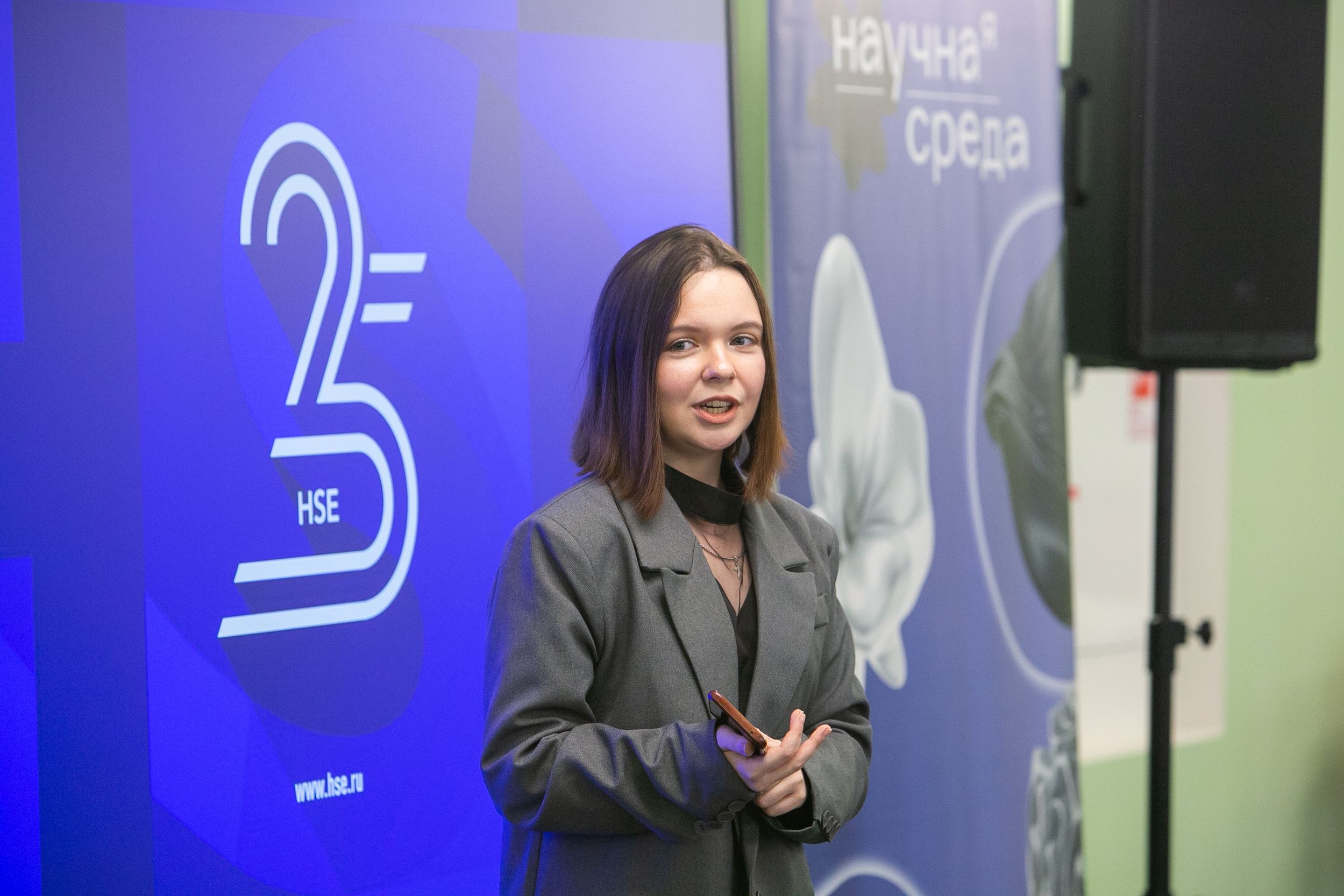
At a meeting with young colleagues, Yulia Vitko, postgraduate student and research assistant at the School of Psychology, Faculty of Social Sciences, shared that she found herself at a research laboratory in her second year completely by accident: ‘A vacant position as a research assistant became available, and they needed to hire someone urgently.’
She described her path into science as ‘unconscious’; she simply came to her academic supervisor without any idea of what exactly she was going to do or what exactly she was interested in. ‘My first year was a year of wonder and awareness. Suddenly, somehow, I was writing articles, theses—I didn’t understand what was happening at all. But it was one of those states where you are just doing it, and you think “it’s okay”. And gradually, your interest in this activity develops,’ she says.
Yulia explained that she got more from the internship than she did from all the research subjects she had studied at the university, although the subjects were useful. ‘At the laboratory, all the tasks are collected into a single real situation, which you work on and react to. This is very different from a training task—when calculating a result, especially a custom one in a project, you need to take into account not only mathematics, but also, for example, the client’s wishes and other realities. You are working in a multi-layered situation, in a certain context,’ she explains. At the same time, scientific work teaches you to accept the fact that there are some things you do not know, cannot do, or do not understand—and still try to find a way to solve the problem.
Yulia Vitko advises young colleagues to take additional training whenever possible—apart from paid options, students can audit certain courses and select those that can help solve a specific problem. This is an important and useful experience, which, in addition to providing knowledge from other programmes, also presents opportunities to meet people, establish connections, embark on joint projects, and more.
According to Yulia, working as a research assistant while studying as an undergraduate is a chance to try out different fields, and if you do not already have a narrow, specific interest, you might discover one. ‘First, you try gazpacho, then you know whether you like gazpacho or not,’ she says.
Conversely, doctoral students should focus on areas that are related to the topic of their dissertation, as it is too difficult to juggle trying out different things, preparing for the defence, and possibly working somewhere at the same time.
One important tool for supporting early-career researchers is membership in the Science Republic. This allows young scientists to receive support in the form of travel grants or funding to implement a group research projects.
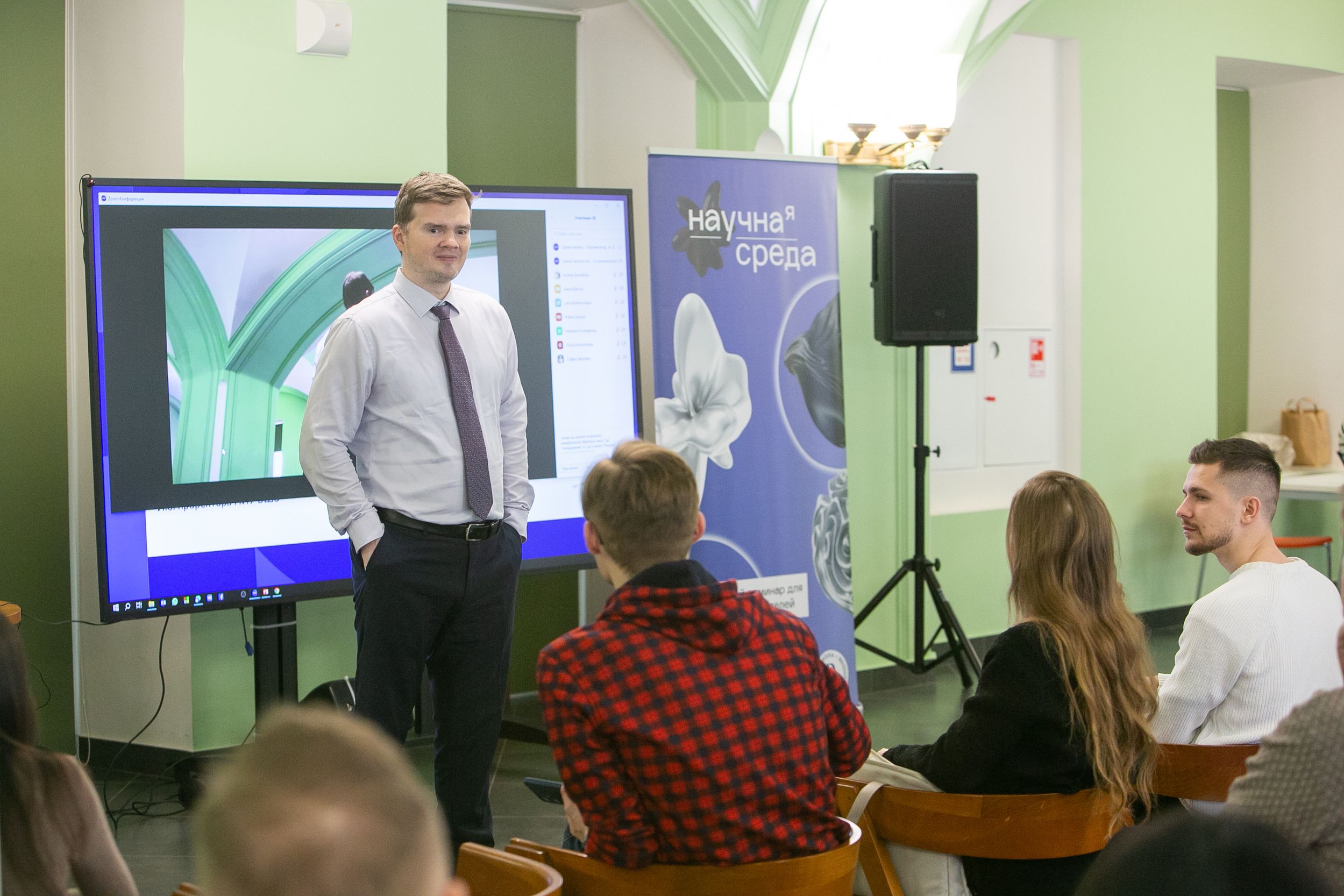
Dmitry Dagaev, Head of the Laboratory of Sports Studies at the Faculty of Economic Sciences, recommended that young researchers actively take advantage of the collaboration opportunities offered by HSE University. ‘Don’t limit yourself to participating in the internal seminars of a laboratory or institute—take a look at what is happening in neighbouring scientific departments. In modern science, interesting ideas very often lie at the intersection of several scientific areas. To notice interesting ideas in interdisciplinary research, you need to have a breadth of knowledge. That is why it is important to understand what is on the cutting edge of science not only in your field of research, but also around you,’ he said.
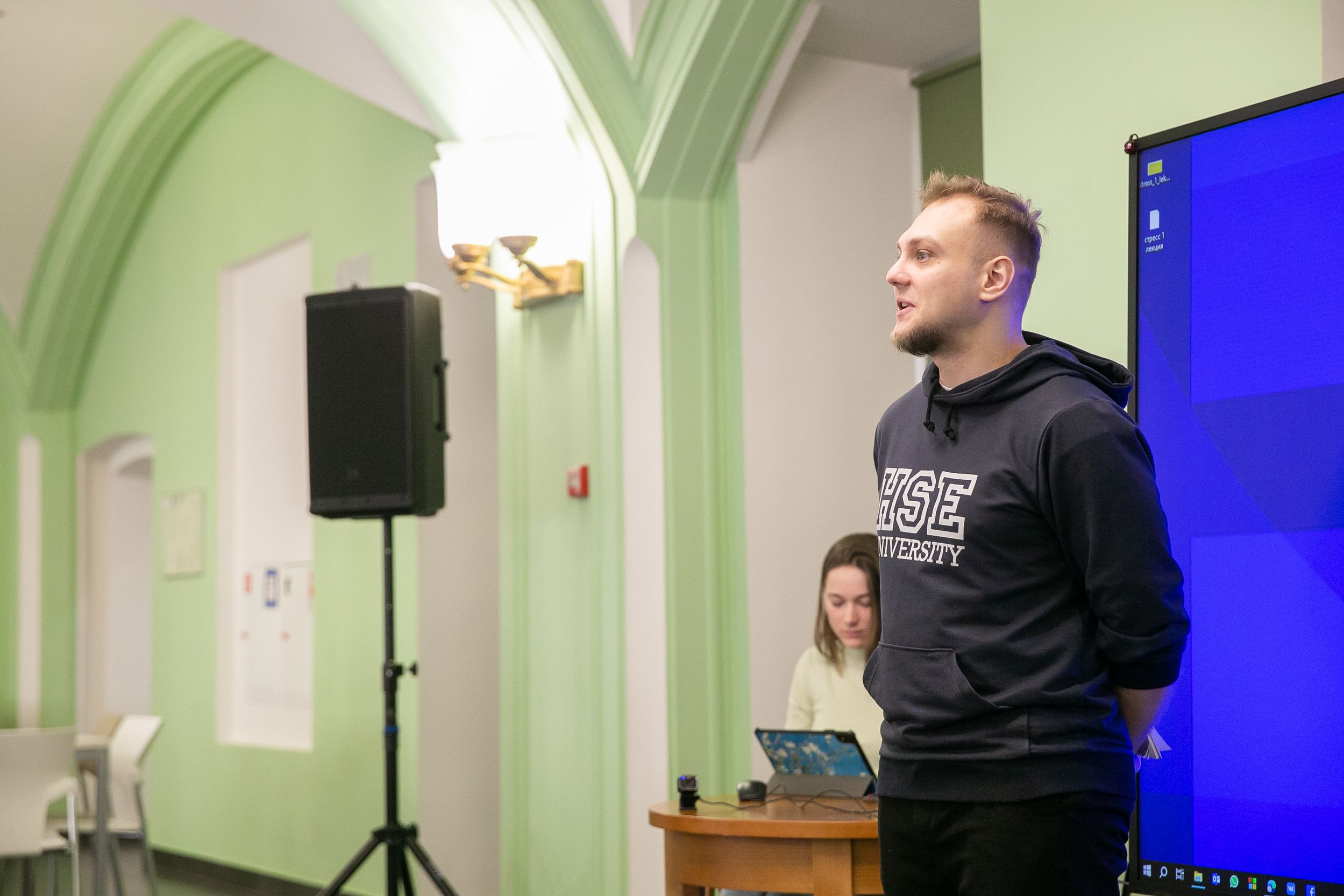
Several years ago, Dmitry Podukhovich, research assistant at the Corporate Finance Centre of the Faculty of Economic Sciences, teacher at the School of Finance, and analyst at the Centre for Development and Integration of Project Activities, faced a choice between working for a company or trying his hand at science.
‘The natural way to move into science is to see what a laboratory is doing, talk to someone who is consulting, and discuss what you can do. My eyes lit up—I was interested,’ he admits. According to Dmitry, ‘scientific interest stems from the surprise that comes when you make one or two discoveries.’
‘Sometimes, you can’t sleep because ideas appear in your head, you think about how they fit into place, into meaning. This, of course, takes place over a long period, and calculations are already based on a foundation laid earlier. But you understand: here it is, I already indicated it when I found it, it really has its own path. It’s interesting,’ he says.
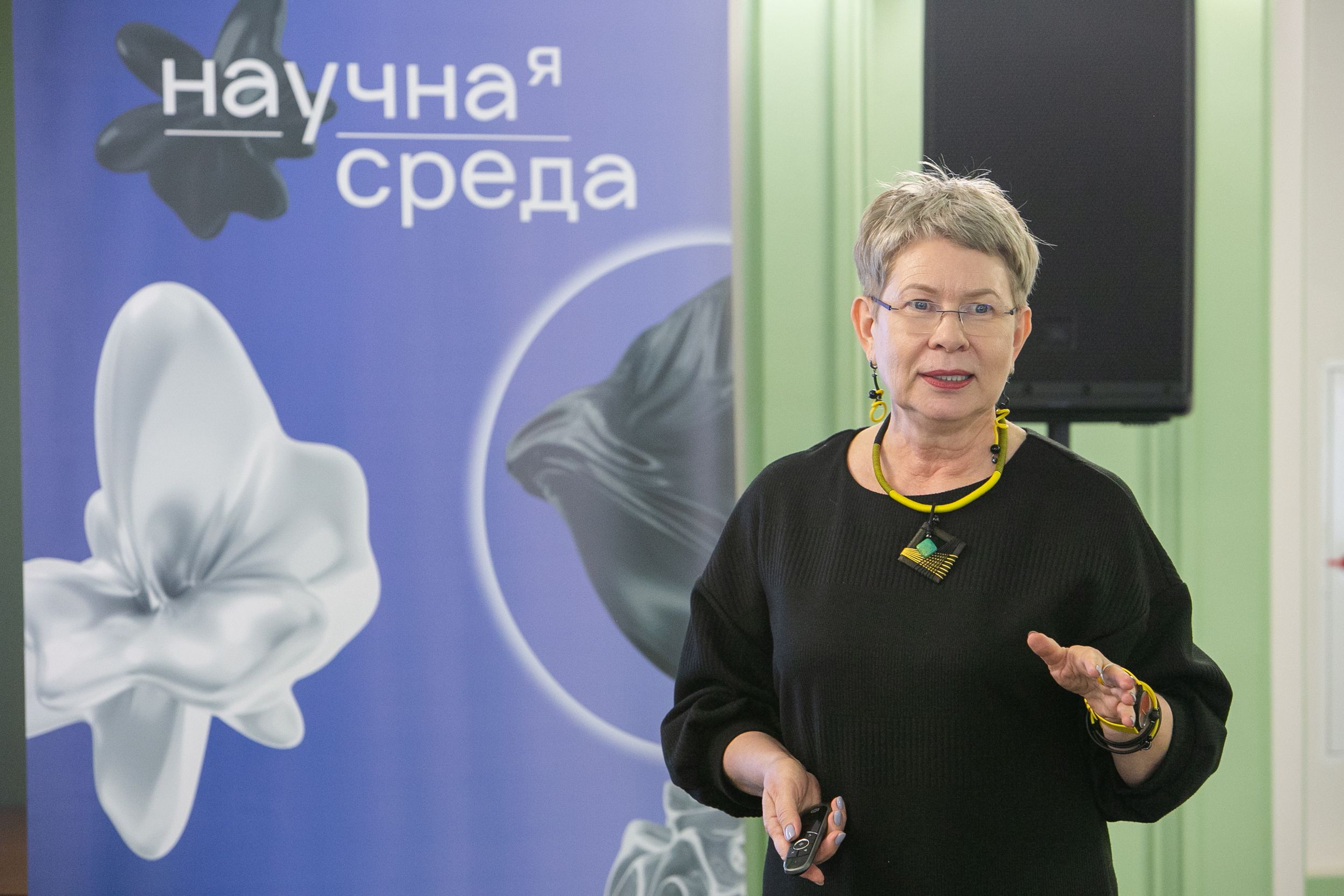
As part of the seminar, Svetlana Suchkova, Director of the Academic Writing Centre at the Office for Academic Development, conducted a workshop on the use of artificial intelligence tools for preparing research papers, searching for literature, and more.
After the official part of the meeting, a networking session titled ‘The Wheel of Academic Balance’ was held on forming a plan to develop one’s own research project.
- About
- About
- Key Figures & Facts
- Faculties & Departments
- International Partnerships
- Faculty & Staff
- HSE Buildings
- Public Enquiries
- Studies
- Admissions
- Programme Catalogue
- Undergraduate
- Graduate
- Exchange Programmes
- Summer University
- Summer Schools
- Semester in Moscow
- Business Internship
-
https://elearning.hse.ru/en/mooc/
Massive Open Online Courses
-
https://www.hse.ru/en/visual/
HSE Site for the Visually Impaired
-
http://5top100.com/
Russian Academic Excellence Project 5-100
- © HSE University 1993–2024 Contacts Copyright Privacy Policy Site Map
- Edit


